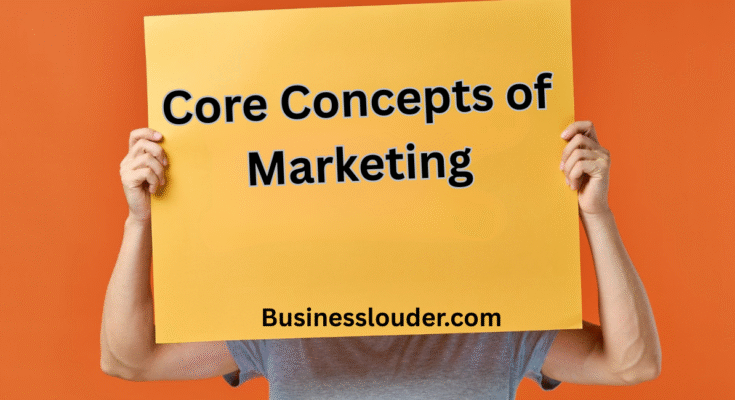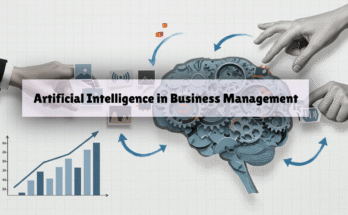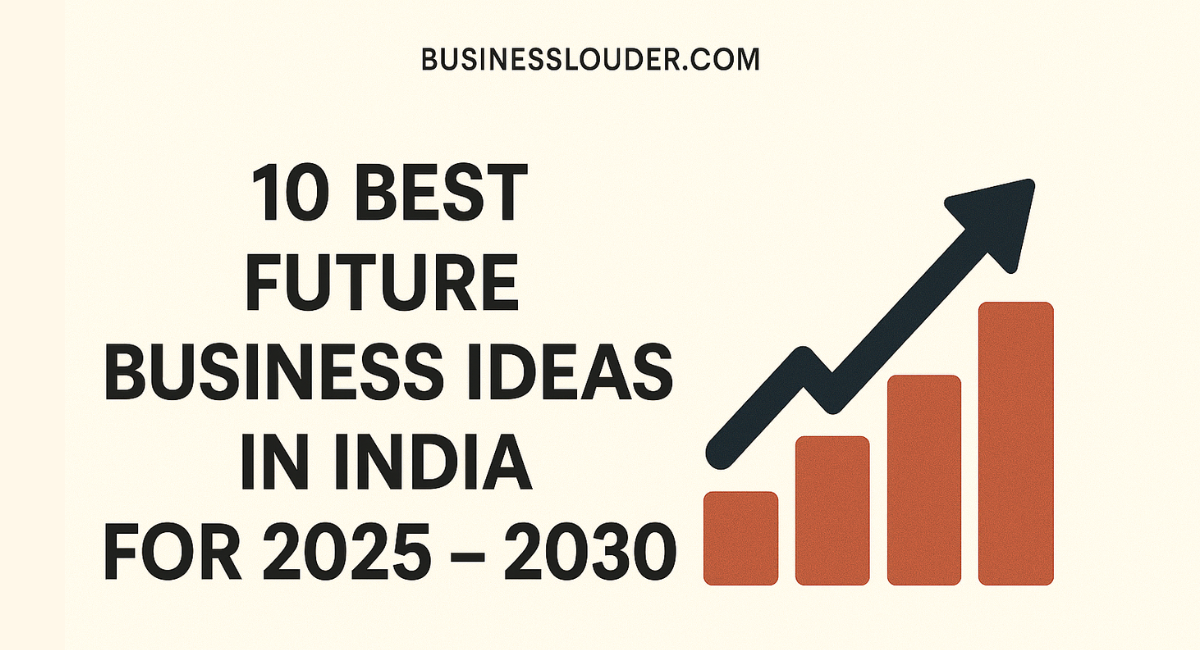The major goal of marketing is usually to build a relationship with their customers and satisfy their needs by meeting their requirements. This can be done by building a strong marketing strategy. Thus, it becomes essential to first understand the basic and core concepts of Marketing.
Here in this blog post, we will see 5 core concepts of marketing. Let’s have a look at what those 5 core marketing concepts are.
The Core Concepts of Marketing
The term “marketing concept” refers to a broad term wherein a company plans to maximize profit by boosting sales, meeting their customers’ needs, and surpassing competitors.
These concepts form the basis for developing strategies and tactics in order to achieve marketing goals. They serve as fundamental principles and guide the marketing process.
The 5 Core Concepts of Marketing are as follows:
1. The Production Concept
The Production Concept is based on the idea of manufacturing the products at a cheaper rate to make them readily available and affordable to the mass population. This concept focuses on production processes and quantity over quality.
This concept first emerged during the rise of early capitalism in the mid-1950s, when companies were focused on efficiency in manufacturing to ensure maximum profits and scalability.
Big Brands like McDonald’s, Forever 21, Starbucks, and even Amazon, all use this concept. These brands focus on mass production, keep costs low and sell to a large consumer base. Although each item sells at a low-profit margin, selling very high volumes ensures that profit remains high.
This concept carries a risk of businesses becoming overly focused on cheap production and easily losing touch with the needs of the customer. They ultimately lose their business despite its cheap and accessible goods.
2. The Product Concept
The product concept is the opposite of the production concept and emphasizes that buyers prioritize a product’s features, quality, and benefits. Product-focused customers seek innovation and uniqueness rather than seeking the lowest price.
This marketing strategy thus focuses on continuous improvement of the product and its innovation.
One best example of this type of marketing concept would be Apple.
The user experience with Apple devices is known for being outstanding. They are made to be simple to use, intuitive, and simple to set up and maintain. Everything about them is elegant, from their sleek packaging to their simple design and user-friendly controls.
Apple charges a premium price for its products, but its devoted customers are willing to pay for the higher quality and usability they provide. Accessibility is a priority for Apple, which distinguishes its goods from others on the market.
3. The Selling Concept
The Selling Concept believes in the philosophy that the marketing strategy needs to focus on getting the consumer to the actual transaction, or making a sale, without regard for the customer’s needs or the product quality. This concept believes that customers will not purchase an enough quantity of a product or service unless they are actively convinced and persuaded to do so.
Companies often employ numerous techniques to sway hesitant buyers into making a purchase. This marketing strategy is a costly tactic and is rooted in the selling concept which involves pervasive and continuous advertising efforts.
Brands that aggressively promote Black Friday and Cyber Monday, such as Amazon, and many other big brands also use this tactic. Brands that rely on email marketing with daily emails that advertise discounts, sales, and special offers resort to the selling concept of marketing. These brands constantly strive to capture their customers’ attention with their latest deals.
Cold calling or emailing on a large scale without properly qualifying leads also aligns with the sales concept.
4. The Marketing Concept
While the selling concept is about what the company wants or needs, the marketing concept focuses on the customer. This concept focuses on enhancing a company’s capacity for competition and maximizing profits by marketing the ways in which it can provide its customers with higher value than its competitors. Knowing the target market, assessing its requirements, and efficiently satisfying those wants and needs is key.
The marketing concept places customers in the middle of the marketing process. This concept is also called as “customer-first approach”.
An example of a brand that uses this approach is the skincare and makeup brand – Glossier.
Glossier understands that many women are unhappy with the way makeup negatively affects their skin. They also observed that women are tired of being told what makeup products to use and what not to use. With all these in mind,
Glossier introduced a one-of-its-kind line of skincare and makeup products that not only nourish the skin but are also easy to use and also promote individualism and personal expression with makeup.
5. The Societal Marketing Concept
The idea behind the societal marketing concept is based on the idea that marketers have a moral responsibility towards society and to promote what’s good for people over what people may want, regardless of what the company’s sales goals might be. It is an emerging concept that takes into account the welfare of the entire society.
The goal and aim of this marketing concept is to make businesses understand that they have a societal and environmental responsibility that is much more important than their short-term sales and profit goals. Businesses should design their plans and strategies in such a way that they operate towards a sustainable future for society. Organizations are, after all, a part of society and should behave like one.
Thus, businesses should focus on meeting customers’ needs to solve their problems while ensuring no harm comes to society. The solution should be provided as ethically as possible.
The fast-food industry is an example of the social issue that this concept seeks to solve. Fast food is highly demanded in society, yet it is high in fat and sugar and creates a lot of waste. Even if the industry satisfies the demands of the modern consumer, it harms our health and undermines our society’s effort to preserve the environment.
The Final Word
These 5 marketing concepts are also known as ‘marketing management philosophies’.
Though all businesses might not need to use all the concepts mentioned here, the type that can be utilized by them depends on several factors – such as the nature of their target audience, organizational goals, etc.




2 Comments on “The 5 Core Concepts of Marketing”